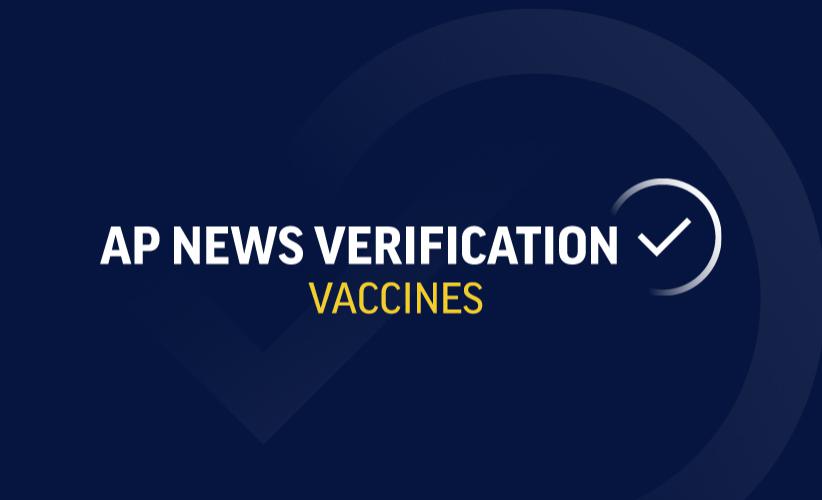COVID treatments weren’t suppressed to OK vaccines’ emergency use

CLAIM: Ivermectin and hydroxychloroquine were suppressed as COVID-19 treatments because the vaccines couldn’t receive emergency use authorization if such treatments were available.
AP’S ASSESSMENT: False. There is nothing in federal law or regulation that prohibits a preventative measure such as a vaccine from being authorized for emergency use because a treatment is available, experts and officials say. The body of scientific evidence available has not proven that ivermectin or hydroxychloroquine are effective in treating COVID-19.
THE FACTS: Social media users are sharing a conspiracy theory that posits that the drugs hydroxychloroquine and ivermectin were withheld as COVID-19 treatments by officials in order to greenlight vaccines under emergency use authorization.
“This Is Why Hydroxychloroquine And Ivermectin Was Savaged By The Deep State,” reads text in an image shared on Facebook and Twitter. The image includes a screenshot of a tweet that reads: “In order for the vaccines to receive emergency approval for usage, there cannot be any effective treatments available. HCG and Ivermectin had to be discredited for the vaccines to get their go ahead.”
That’s wrong, experts and officials told The Associated Press.
The COVID-19 vaccines from Pfizer, Moderna and Johnson & Johnson were all initially made available under emergency use authorization by the Food and Drug Administration — though the Pfizer and Moderna shots were later fully approved for certain people.
An emergency use authorization, the FDA explains, allows “the use of unapproved medical products, or unapproved uses of approved medical products in an emergency to diagnose, treat, or prevent serious or life-threatening diseases or conditions when certain statutory criteria have been met, including that there are no adequate, approved, and available alternatives.”
But the FDA said in a statement that an “available treatment for COVID-19 does not preclude the FDA from authorizing a vaccine to prevent COVID-19.”
Likewise, Ana Santos Rutschman, a law professor at Villanova University with expertise in vaccine law and policy, said there is nothing in federal law or FDA regulation indicating that the existence of a treatment for a particular disease means that an emergency use authorization can’t be issued for a preventative measure such as a vaccine.
“These are two separate types of drugs and tools in the public health toolkit and there may be a need for one of these products or for both of them under an EUA situation,” she said in an email.
It’s also possible to authorize multiple vaccines for the same disease, Rutschman noted, “as long as there is a public health need for more vaccines.”
In fact, even after the Pfizer and Moderna COVID-19 vaccines received full approval, the FDA in July granted an emergency use authorization for a new COVID-19 vaccine from Novavax.
The FDA also had approved the drug remdesivir for use in hospitalized COVID-19 patients in October 2020 — two months before the agency authorized the first COVID-19 vaccine, from Pfizer, for emergency use.
In addition, the agency had issued an emergency use authorization for convalescent plasma to treat hospitalized COVID-19 patients before the vaccines were available, noted Dr. Aaron Kesselheim, a Harvard Medical School professor and expert on regulation.
That “didn’t stop the vaccines from getting EUAs as early as possible based on when the data came out,” Kesselheim said.
Hydroxychloroquine was in fact granted emergency use authorization for COVID-19 in 2020, too. The anti-malaria drug was authorized to be used for certain hospitalized COVID-19 patients, but the FDA revoked that authorization in June 2020, saying emerging data suggested it was “unlikely to be effective in treating COVID-19 for the authorized uses in the EUA.”
Current COVID-19 treatment guidelines from the National Institutes of Health recommend against the use of ivermectin for treating the disease, except in clinical trials, because studies to date have not demonstrated efficacy for the anti-parasitic drug.
___
This is part of AP’s effort to address widely shared misinformation, including work with outside companies and organizations to add factual context to misleading content that is circulating online. Learn more about fact-checking at AP.


